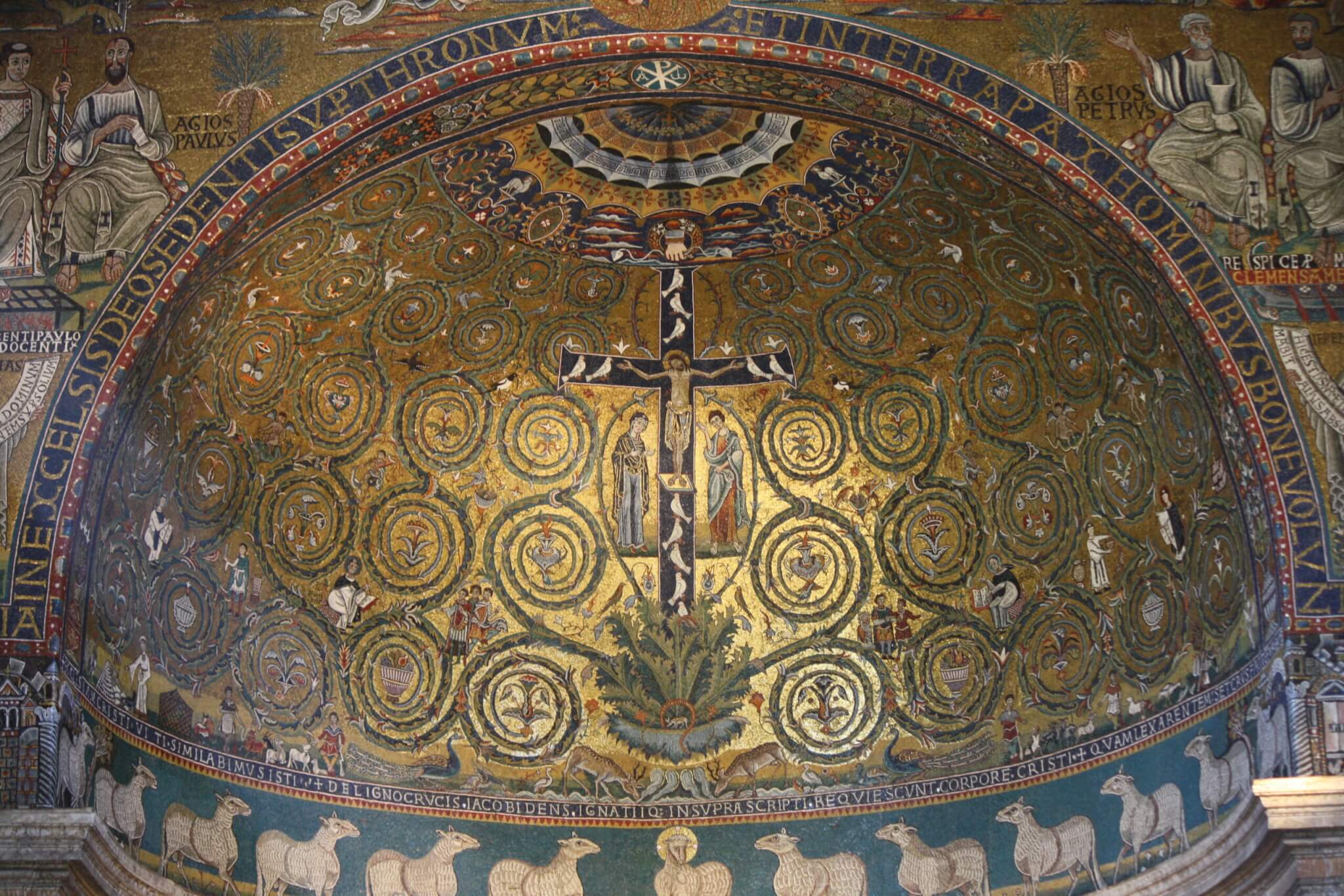The law of praying (3): Praying for the Church
Over the summer, we are looking at a section from the Canon of the Mass each week, to learn what the ‘law of praying’ has to teach us about what we believe. You can find the previous posts in this series in our reflections archive.

…your holy catholic Church.
Be pleased to grant her peace,
to guard, unite and govern her
throughout the whole world,
together with your servant N. our Pope
and N. our Bishop,
and all those who, holding to the truth,
hand on the catholic and apostolic faith.
We began our prayer asking God the Father to accept our sacrifice, and now we make the first of our petitions for people. In the first place, we pray always as members of the Church. The Mass is the principal prayer of the Church, and every Mass is offered for all her members, living and dead. So in our private prayer, we should remember that we never pray purely as individuals. Neither should we pray only for our own intentions. But, as members of the Church, we have a duty to contribute to that daily round of petition addressed to God for the needs of all our brothers and sisters. And when we do so, we are in turn reminded that they are praying for us as well. If we find ourselves with more time to pray for the needs of the Church, we should make that investment while we can, trusting that others will return the favour when we need support. And so our prayer not only reminds us of our unity, but actually builds up those bonds of charity.
And this idea doesn’t just apply to our prayer. Our actions too are performed not only as private individuals, but as members of the Church. When we do good, it is not just to our benefit. When we sin, we don’t just hurt ourselves. I was once explaining this to a member of the armed forces. ‘Imagine you were in the centre of town, drunk and shouting and fighting with people in the street. Now imagine you were in your uniform. What would your commanding officer say?’ ‘Oh no,’ he replied, ‘He’d say: You’ve not just disgraced yourself! You’ve brought disgrace on the RAF. You’ve brought disgrace on your country…’ The list continued. That’s why at the beginning of Mass we confess our sins not just to Almighty God, but also ‘to you, my brothers and sisters’. Every sin we commit not only harms us, but the Church as well. The worst sins damage our union with the Church. Some of the sins the Church fears most are those that break apart her members: apostasy, schism and heresy. So we pray, first of all, for that safety in which our faith will flourish, in a Church guarded and governed by God, united in the true faith.
Then notice that we don’t explicitly pray for our Pope and Bishop. We do pray for them, of course, because they are included among all those members of the Church that we are praying will be guarded, united and governed by God. But we mention the Pope and Bishop here not simply as people we ought to pray for. We name them to identify what it is we’re talking about when we use the word ‘Church’. We name them because they are our guarantee that the Church we are in communion with is the Church founded by Christ himself, and is in union with him. We know that we are part of the Church because of our communion with the successor of St Peter, and the successor of the Apostles who heads our local church (in our case, the Archbishop of Birmingham).
The bishops — and the Pope as foremost among them — ‘hand on the catholic and apostolic faith’ in an unbroken succession that goes all the way back to the Apostles — who in turn received that faith from Christ himself. This ‘Tradition’ (from the Latin tradeo — I hand over) is the deposit of faith. It tells us who Christ was, and what he was like. It gives us our historical link to him and his teaching.
But Christ became man not just to hand over a set of doctrines. We don’t just want to know about him. We also want to know him, directly. And so by passing on to his Apostles the Holy Spirit, who in turn handed the Spirit on to the first bishops, Christ is made present here and now in every place that a successor of the Apostles celebrates the Mass. Without this unbroken chain of apostolic succession, we wouldn’t be able to enjoy the close relationship we have with Christ, who is present and draws us closer to him in every one of the sacraments.

